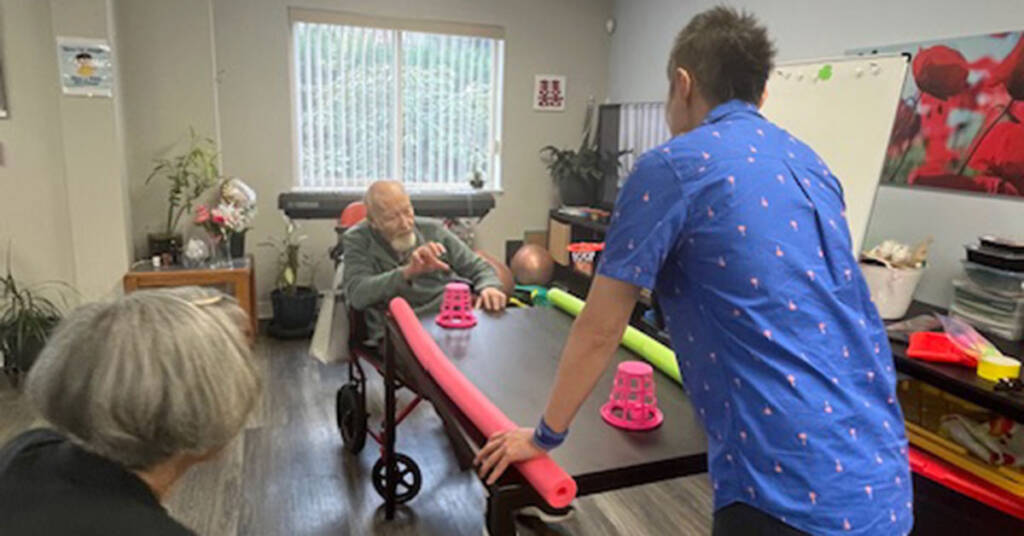
Communication is a fundamental part of our human experience. It helps us express our needs, share memories, and feel connected. But as dementia progresses, the way a person communicates can change—sometimes gradually, sometimes more noticeably. These changes can be challenging, but they also open the door to new ways of connecting, understanding, and expressing care.
At the Adult Cognitive Wellness Centre, we understand that every person’s dementia journey is unique. That’s why our holistic programs are designed to support both individuals living with cognitive change and their families. We place a strong emphasis on understanding communication shifts and providing tools that foster meaningful interaction at every stage.
1. Early Signs of Communication Changes
In the early stages of dementia, you may notice:
- Difficulty finding the right word
- Repeating stories or questions
- Losing the thread of a conversation
- Needing more time to respond
At this stage, patience and gentle support are key. Offering time and space, minimizing distractions, and maintaining a warm, non-judgmental tone can make a big difference.
2. Adapting Your Communication Style
As dementia progresses, individuals might:
- Speak less frequently
- Use gestures rather than words
- Struggle with vocabulary or sequencing
- Get confused by long or complex sentences
We recommend:
- Using short, simple sentences
- Asking one question at a time
- Offering visual cues or choices
- Keeping tone and facial expressions calm and reassuring
These strategies are part of our day-to-day approach at ACWC, helping participants feel safe, heard, and included.
3. Finding New Ways to Connect
When verbal communication becomes more difficult, connection is still possible—and deeply meaningful. At the Adult Cognitive Wellness Centre, we actively use a variety of non-verbal and creative communication tools, including:
- Touch – Holding hands, offering a gentle touch on the shoulder, or giving a warm hug (when appropriate) can offer comfort and connection
- Music – Singing familiar songs or playing meaningful music often awakens memory, emotion, and joy
- Visual aids – Using photo albums, memory cards, picture boards, or simple objects related to a person’s past can trigger engagement and recognition
- Creative expression – Art, movement, and sensory activities allow self-expression beyond words
These approaches are not just occasional tools in our program—they are built into our daily routines and activities. We’ve seen firsthand how a familiar song or a simple art project can spark joy and bridge the gap when words fall short.
4. Looking Beyond the Words
Behavior often speaks louder than words. What may appear as restlessness, anger, or withdrawal may actually be an attempt to communicate a need, fear, or feeling. Our team is trained to observe and listen with compassion, helping caregivers learn how to “hear” what’s being expressed underneath the behaviour.
As we often remind families: Focus on the emotion, not just the action.
5. Support for Caregivers
Witnessing communication changes in a loved one can be emotional and exhausting. At ACWC, we not only support individuals with dementia—we also support their families. Through education, support groups, and one-on-one guidance, we help caregivers feel equipped, empowered, and emotionally supported.
Final Thoughts
Although dementia changes the way we communicate, the need for connection, respect, and love remains unchanged. At the Adult Cognitive Wellness Centre, we are committed to adapting with each individual, meeting them where they are, and discovering new ways to share joy and meaning—together.
If you’re supporting a loved one on this journey, know that you’re not alone. Contact us today to learn how our program can support you and your family with expert care, creativity, and compassion.

